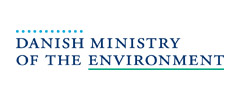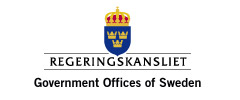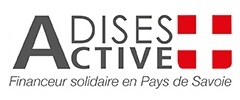Portugese environment NGO critizes recycling plan:
Barroso and European Commission in reality call for incineration
13.01.2006 |Sascha Gabizon
http://quercus.sensocomum.pt
European Commission presented a proposal for a Strategy on Prevention and Recycling that is nothing more than a call on incineration.
The President of the European Commission, the Portuguese Durão Barroso, has particular responsibilities on this matters and reveals total incoherence, since as a politician in Portugal he always defended recycling, having presented several proposals to the Parliament on this matter. Now, as happened with the European chemicals policy (REACH), he seems to be highly receptive to the interest of certain economic groups.
If the European governments accept such a proposal,Portugalwill be seriously affected, since substitution of recycling by incineration will lead to great difficulties for the recycling units that are now being implemented and thousands of new jobs will be at risk.
The most relevant aspects of the Strategy are:
1. Commission recognizes that recycling is, by far, the waste treatment process that generates more jobs
According to EC data the management of 10,000 tonnes of waste generates the following jobs, depending on the selected process:
- Recycling: 250
- Incineration: 30
- Landfill: 10
Commission recognizes the challenges that the continuous increase in waste production represents (on average, for the EU, it’s now equal or superior to GIP) but goes no further than the expression of the need for each country to develop a national plan on prevention, presenting no targets and remitting to 2010 the evaluation of national plans results. In 20 pages of text the Strategy on prevention and recycling dedicates only half page to prevention.
3 - Durão Barroso wants to co-incinerate waste oils
The President of the European Commission, Durão Barroso, that as a political leader inPortugaldefended regeneration of waste oils, is now ready to ignore the priority established until recently to regeneration, considering it equivalent to co-incineration on cement kilns. This decision is supposedly based on life cycle analysis studies, but the most recent studies available (Feb. 2005) clearly show the opposite, undeniably favouring regeneration.
4 – Commission says incineration is the same as recycling
This strategy systematically mixes incineration and recycling, with the clear intention of making it sound like we are talking about equivalent waste treatment processes. Regarding organic waste, incineration is considered as environmentally sound as recycling by composting or anaerobic digestion, witch is a serious technical mistake, clearly showing the spirit behind this document.
5 – Commission intends to make recycling more difficult and incineration easier
All Strategy tries to create barriers to recycling, either by the absence of targets, the equivalence to incineration or the creation of stricter regulations to this activity. When it comes to incineration, the strategy is to make it easier, for example, by decreasing legislation on pre-treated waste destined to incineration or by considering waste incineration in urban solid waste incinerators as recovery, contradicting the ruling the European Court of Justice that goes on the opposite direction.
6 – Thirty years of work on prevention and recycling can go down the drain
This Strategy clearly jeopardizes all the work done in the last thirty years, trying to build a European model for the sustainable management of waste having as a base the 3R’s policy (reduction, reuse and recycling).
7 – Strategy is a bad example for other countries outside the European Union
The document recognizes that many countries outside the EU have followed the European good example by establishing recycling targets and attributing responsibility for the waste destination to its producer. Nevertheless, it ignores the fact that ifEuropeadapts a deregulation approach it will set a poor example to the rest of the world.
8 – European Commission wants to resign of its functions
In themes like prevention policy, target establishment or the option between recycling and incineration, the European Commission seems to be willing to pass on its responsibility for member states, leaving them at the mercy of strong lobbies, as shown by the recent association, inPortugal, of the three companies responsible for municipal solid waste incineration.
9 – The Principle of Producer Responsibility is on the line
Disrespecting all the efforts from previous years, the Commission wants to erase the producer responsibility principle, according to which companies that place products on the market are responsible for financing its management once they become waste. This approach allowed the organization of management systems on important waste fluxes as: packaging or electric and electronic equipment (WEEE). Now, Commission seems to be interested in establishing targets by materials not taking into account the product that originated the waste, a context that will make extremely difficult any attempt to attribute responsibility for eventual problems in the achievement of the proposed targets.
10 -Portugalwill be severely harmed
Portugal, that has been making a strong investment in the creation of waste management systems, based on establishing reasonable targets and producer responsibility, is now in danger of seeing its strategy and effort questioned. ToPortugalthe employment potential of recycling processes can be a strong point to economic and social development. In the present,Portugalis one of the European countries with the highest number of waste management systems based on the producer responsibility principle, many of which are not mandatory at the European level as it is the case of batteries, tyres or waste oils.
11- Quercus ask the Portuguese Government to defend the 3 R’s policy
Following the Commission presentation of the Strategy, Quercus asked the Portuguese Government, through the Environment Ministry, to assume a strong position in the discussion due to be held at 10 of January, in Brussels, in order to defend the 3R’s policy (reduce, reuse and recycling), since this approach is more beneficial to Portugal in environment and economic terms.


































